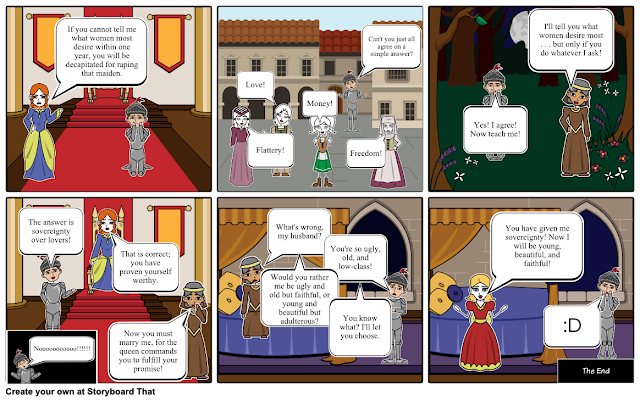Wife of Bath's Tale
In the Wife of Bath's Tale there is a knight that is talked about. From my understanding he took advantage of a girl and the King wanted to kill him. I did some googling and this was what I gathered from it. So he basically raped this girl for no other reason than that he simply wanted to. Then these girls begged the King not to kill him and sent him instead on a mission. A mission to find out what it is that women really want. I found this odd, I remember thinking it was strange in high school as well when I read this. Why would they want him to stay alive after he did that awful thing, and why would they send him on such a wild goose chase. Theres the phrase, "A happy wife is a happy life" and this came to mind while I was reading because there is such truth in that statement. The Knight ends up coming up with the answer that women just want control of the relationship. This is an interesting concept, and I agree to a certain extent. Women like to be in control and have...
